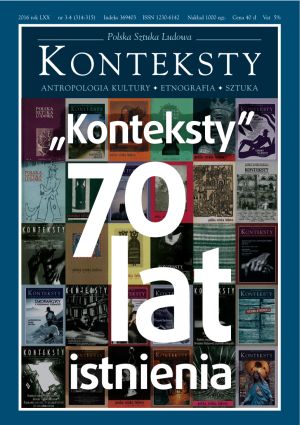Pędzel Derwida
Derwid’s Paintbrush
Author(s): Urszula MakowskaSubject(s): History, Fine Arts / Performing Arts
Published by: Instytut Sztuki Polskiej Akademii Nauk
Keywords: Jan Świerczyński; painting; art
Summary/Abstract: Up to now, the painter Jan Świerczyński (1882-1973) has been absent in the history of Polish art. He remains known almost exclusively as the father of the poetess Anna Świrszczyńska, who presented his biography in the Wiersze o ojcu i matce series (1985) and in several statements made in her prose. The artist’s only one-man show took place at the Zachęta Gallery in Warsaw in 1928. The works on display included a composition inspired by Lilla Weneda, a drama by Juliusz Słowacki. Its symmetric configuration, formal references to folk art, and departure from the rules of painting are decisive for close analogies with the structure of the play, which could be derived from the puppet theatre. By granting the dead Lilla features of the Madonna Świerczyński combined the fifth and eighth (closing) scenes of the drama into a single whole. The source of this sacralisation of the female protagonist was the litany apostrophe of King Derwid, who only after his daughter’s death assumed the role of a father. The motifs of incestuous love between a father and a daughter (or patricide), dominating the contemporary discourse, appear to be applied to a limited extent in the interpretation of both Słowacki’s Lilla Weneda and Anna Świrszczyńska’s poems about her father.
Journal: Konteksty
- Issue Year: 314/2016
- Issue No: 3-4
- Page Range: 258-267
- Page Count: 10
- Language: Polish
- Content File-PDF

